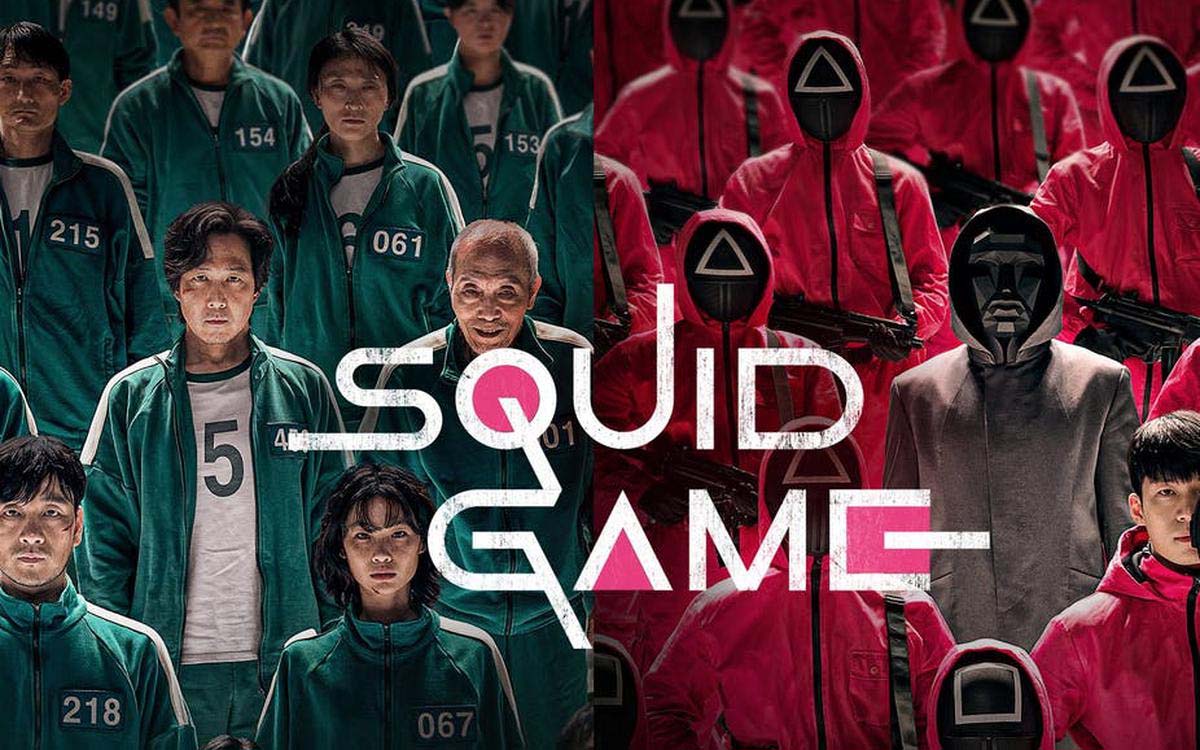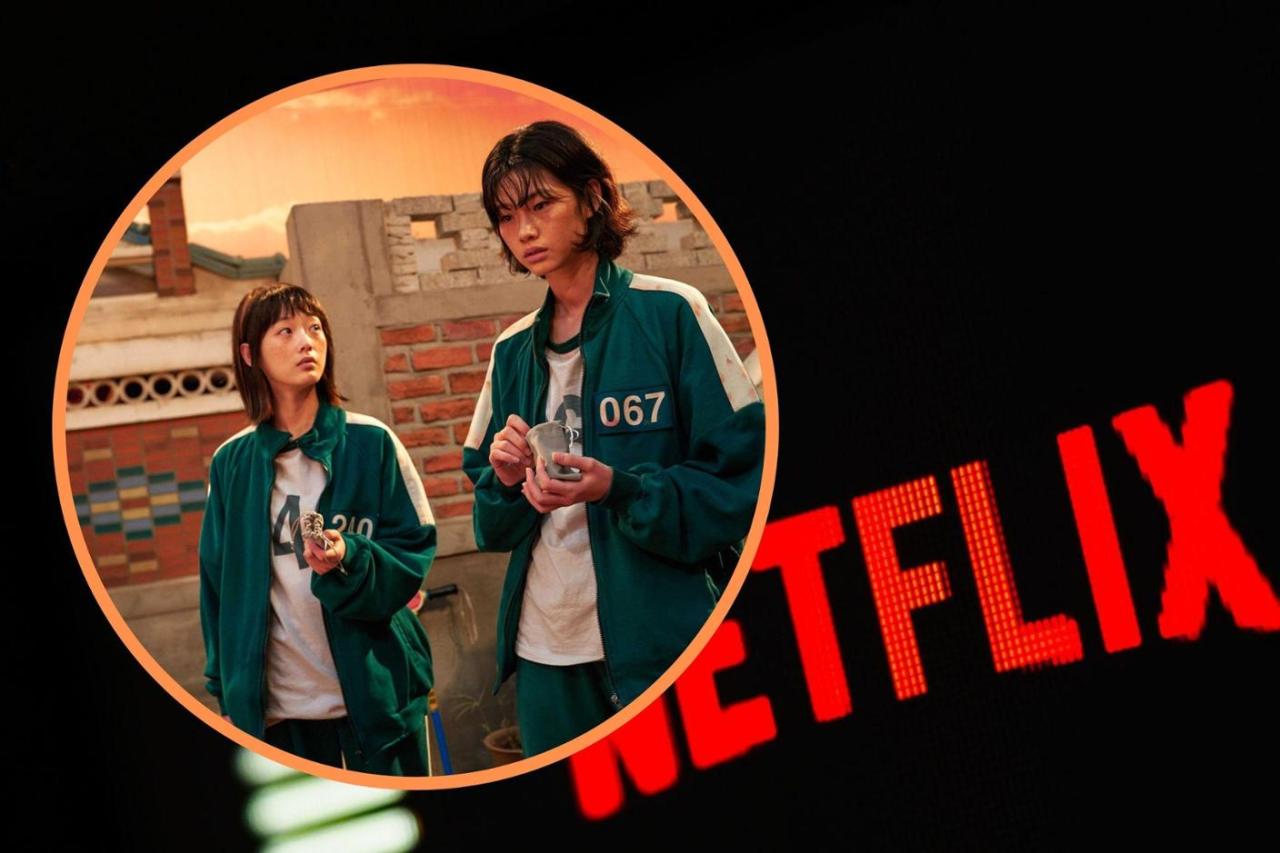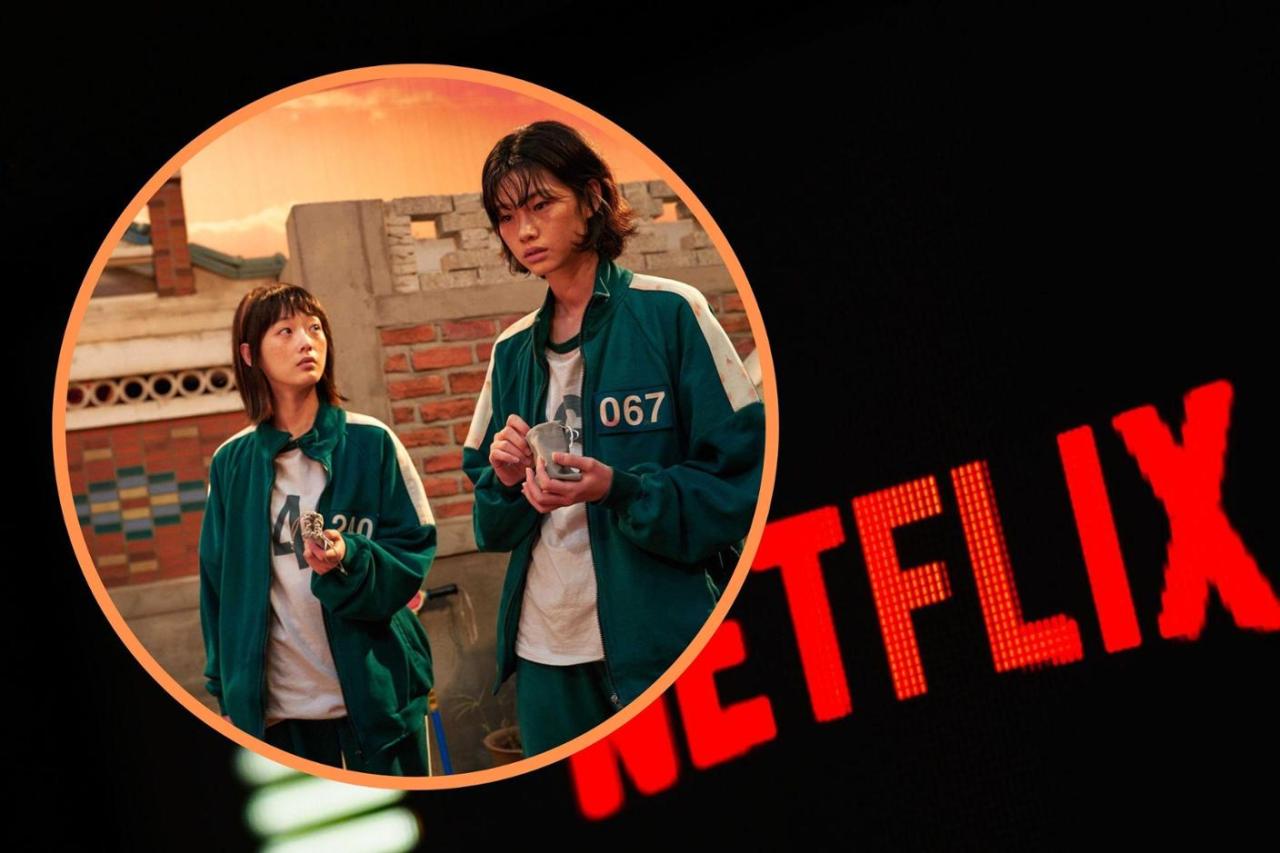Squid Game Histoire Vraie? The wildly popular Netflix series wasn’t just a thrilling spectacle; it tapped into real-world anxieties about debt, inequality, and desperation. This exploration delves into the show’s inspiration, examining the socio-economic realities of South Korea and comparing the fictional games to actual historical precedents. We’ll dissect the characters’ motivations, analyze the show’s global impact, and consider the disturbingly realistic portrayal of poverty and its consequences.
From the crushing weight of debt driving participants to the brutal games themselves, we’ll unpack how much of “Squid Game” reflects the harsh realities faced by many around the world. We’ll look at the show’s success in sparking global conversations about economic disparity and the human cost of societal inequalities. Prepare to question how far removed the fictional world of the series really is from our own.
The Inspiration Behind “Squid Game”: Real-World Parallels in South Korea
The runaway success of “Squid Game” stems not just from its gripping narrative but also from its unsettlingly accurate portrayal of socio-economic realities in South Korea. The show’s brutal games serve as a stark metaphor for the pressures faced by individuals struggling with crushing debt and systemic inequality.
Real-Life Debt Crises in South Korea

South Korea has a history of significant debt crises impacting individuals and families. High levels of household debt, coupled with economic downturns, have driven many into financial ruin. For instance, the 1997-98 Asian financial crisis had a devastating effect, leaving many without jobs and struggling to repay loans. The subsequent rise of predatory lending practices further exacerbated the problem, trapping vulnerable individuals in cycles of debt.
This desperation, mirroring the characters’ motivations in “Squid Game,” is a crucial element of the show’s realism.
Socio-Economic Inequalities in “Squid Game” and South Korea

The stark contrast between the opulent VIPs and the debt-ridden players in “Squid Game” reflects the significant socio-economic disparity present in South Korean society. The show highlights the widening gap between the wealthy elite and the struggling working class, a situation mirrored by the real-life income inequality prevalent in the country. The limited social mobility depicted in the series, where individuals seem trapped by their circumstances, resonates with the challenges many Koreans face in ascending the socio-economic ladder.
Historical Context of South Korea’s Economic Development
South Korea’s rapid economic growth following the Korean War, often referred to as the “Miracle on the Han River,” is a key element to understanding the backdrop of “Squid Game.” While this period brought unprecedented prosperity for many, it also created significant inequalities. The rapid industrialization and urbanization led to a widening gap between the rich and the poor, a disparity subtly reflected in the show’s narrative through the contrasting lifestyles of the players and the VIPs.
Comparison of “Squid Game” Games to Traditional Korean Games
| Squid Game Game | Traditional Korean Game (if any) | Similarities | Differences |
|---|---|---|---|
| Red Light, Green Light | 무궁화 꽃이 피었습니다 (Mugunghwa kkochi pieotseumnida) | Similar premise of stopping and starting on command. | Squid Game version adds a deadly consequence. |
| Honeycomb | 달고나 (Dalgona) | Uses the same traditional candy. | Squid Game adds a time limit and deadly penalty. |
| Tug-of-War | 줄다리기 (Juldariki) | Identical game. | Squid Game version increases the stakes with a deadly outcome. |
| Marbles | 구슬치기 (Guseulchigi) | Uses the same game mechanics. | Squid Game adds deception and a life-or-death element. |
The Games: Feasibility and Violence

The games in “Squid Game,” while fictionalized, draw inspiration from existing children’s games in Korea, amplifying their inherent simplicity into deadly competitions. Analyzing their feasibility and the level of violence portrayed provides a deeper understanding of the show’s impact.
Feasibility of Recreating the Games
While the basic mechanics of the games are simple enough to recreate, the physical and psychological demands, coupled with the deadly consequences, make them far from feasible in reality. The psychological pressure of life-or-death scenarios would significantly alter the dynamics, pushing individuals to their breaking points. The physical challenges, while seemingly simple, could easily result in serious injury or death under the stressful conditions depicted.
Violence in “Squid Game” Compared to Other Forms of Entertainment
The violence in “Squid Game” is undeniably graphic and brutal, exceeding the levels typically found in other forms of entertainment. However, its explicit nature serves a purpose, highlighting the dehumanizing consequences of systemic issues and the desperation of the characters. While the violence is extreme, it’s presented within a specific context, unlike gratuitous violence found in some other media.
Historical Precedents for Brutal Games
While the specific games in “Squid Game” are not direct historical parallels, the concept of life-or-death competitions and games with extreme consequences has historical precedents. Throughout history, various cultures have engaged in gladiatorial combat, deadly trials, and other forms of entertainment involving risk to life and limb. These historical examples, though vastly different in context, offer a parallel to the show’s extreme premise.
Rules and Consequences of Each Game
- Red Light, Green Light: Players must freeze when the doll turns around; those caught moving are eliminated.
- Honeycomb: Players must carve out shapes from a honeycomb without breaking it; failure results in elimination.
- Tug-of-War: Two teams compete; the losing team is eliminated.
- Marbles: Players must outwit their opponents in a game of marbles; the loser is eliminated.
- Bridge: Players must cross a glass bridge, choosing between tempered and non-tempered glass; incorrect choices lead to death.
- Squid Game: The final game; players must stab each other in a child’s game; only one player survives.
The Characters and Their Motivations
The compelling characters in “Squid Game” are driven by their desperate circumstances. Analyzing their motivations and choices reveals the profound impact of poverty and debt on individual lives and decision-making.
Characters’ Motivations and Real-World Struggles
The characters’ participation in the games is a direct consequence of their financial struggles. Overwhelmed by debt, facing eviction, or struggling to provide for their families, they see the games as a desperate gamble for survival and a chance to escape their dire situations. This desperation mirrors the realities faced by many individuals struggling with poverty and economic hardship globally.
Psychological Impact of Extreme Poverty and Debt
The psychological toll of extreme poverty and debt is significant. Chronic stress, anxiety, and hopelessness can lead to impaired judgment and impulsive decision-making. The characters in “Squid Game” illustrate this, highlighting how desperate circumstances can lead individuals to make choices they wouldn’t otherwise consider.
Comparison to Real-Life Individuals

The characters’ experiences resonate with the stories of individuals worldwide who have faced similar circumstances. Many people, driven to desperation by poverty and debt, have taken extreme risks in the hopes of improving their lives, often with tragic consequences. The show’s realism lies in its ability to portray these difficult realities in a compelling way.
So you’re into the “Squid Game histoire vraie” debate? It’s fascinating how real-life desperation can mirror the show’s themes. Think about the scale – imagine a spectacle like the shanghai drone show 2032 , but instead of light, it’s life-or-death games. That kind of visual impact highlights just how extreme the show’s premise is, even if it’s fictional.
It makes you wonder about the potential for similar high-stakes scenarios in a world increasingly focused on spectacle and competition.
Character Profiles
| Character | Backstory | Motivation | Fate |
|---|---|---|---|
| Seong Gi-hun | Divorced, indebted gambler. | To win money to support his daughter and pay off his debts. | Survives. |
| Cho Sang-woo | Successful but indebted businessman. | To pay off his debts and restore his reputation. | Dies. |
| Kang Sae-byeok | North Korean defector. | To earn money to help her family and escape. | Dies. |
| Ali Abdul | Pakistani migrant worker. | To support his family and repay his employer. | Dies. |
The Show’s Global Impact and Reception
“Squid Game” transcended its initial Korean audience, becoming a global phenomenon with far-reaching cultural implications. Its success lies in its ability to address universal themes of inequality and desperation.
Global Popularity and Cultural Impact, Squid game histoire vraie
The show’s immense popularity spread rapidly across the globe, breaking viewership records on Netflix and sparking widespread discussions on social media. Its cultural impact is evident in the numerous memes, parodies, and merchandise that emerged following its release. It sparked conversations about global inequality, economic disparities, and the struggles of marginalized communities worldwide.
Highlighting Global Inequality and Debt
“Squid Game” successfully brought the harsh realities of global inequality and debt to a wider audience. Its portrayal of desperation and the lengths people will go to escape poverty resonated with viewers worldwide, prompting reflection on economic systems and social injustices.
Influence on Popular Culture
The show’s influence on popular culture is undeniable. From fashion trends inspired by the green tracksuits to social media challenges mimicking the games, “Squid Game” permeated various aspects of daily life. Its impact extends beyond entertainment, sparking discussions on social and economic issues on a global scale.
Timeline of “Squid Game”‘s Success
- September 17, 2021: “Squid Game” premieres on Netflix.
- October 2021: The show becomes a global phenomenon, breaking viewership records.
- November 2021: “Squid Game” dominates social media trends and inspires numerous memes and parodies.
- 2022-Present: The show’s cultural impact continues, influencing fashion, music, and other forms of media.
Illustrative Examples: Visual Depictions of Poverty and Inequality
Visual descriptions can powerfully convey the stark realities of poverty and inequality depicted in “Squid Game”. The following examples illustrate the emotional and physical impact of these issues.
Scene Depicting Poverty in a Densely Populated Urban Area
Imagine a cramped, dimly lit alleyway overflowing with overflowing trash cans. Overcrowded, dilapidated apartment buildings cast long shadows, their peeling paint and broken windows a testament to neglect. Clothes hang from makeshift lines strung between buildings, and the air is thick with the smell of cooking and exhaust fumes. People move through the narrow space, their faces etched with weariness, their clothes worn and patched.
Children play amidst the debris, their laughter a stark contrast to the overall atmosphere of desperation.
Visual Representation of the Emotional Toll of Crippling Debt
A close-up reveals a person’s face, etched with lines of worry and exhaustion. Their eyes are bloodshot and sunken, their shoulders slumped in defeat. Their hands tremble slightly as they clutch a crumpled piece of paper, likely a debt notice. The background is blurred, but hints of a sparsely furnished room and a worn-out piece of furniture suggest a life lived in poverty and hardship.
The overall feeling is one of overwhelming despair and hopelessness.
Visual Representation of the Contrast Between Wealth and Poverty
The scene opens on a luxurious high-rise apartment building, its glass facade gleaming under the city lights. Opulent cars are parked in the building’s underground garage. Across the street, however, lies a stark contrast: a densely populated slum, its buildings crumbling and dilapidated. The sharp divide between the two areas is immediately apparent, highlighting the immense disparity in wealth and living conditions within the same city.
So, you’re into the “Squid Game histoire vraie” debate? It’s fascinating how such intense themes resonate. Think about the sheer scale of the games – it makes you wonder about future large-scale spectacles, like the incredible visuals promised at the shanghai drone show 2031. That kind of coordinated display shows how technology could create similarly impactful, albeit hopefully less deadly, events.
Returning to “Squid Game histoire vraie,” the show’s popularity highlights our fascination with high-stakes situations and the power of spectacle.
The juxtaposition emphasizes the deep chasm between the privileged elite and the impoverished masses.
End of Discussion: Squid Game Histoire Vraie
Ultimately, “Squid Game Histoire Vraie” reveals a chilling truth: while the exaggerated violence and deadly games are fictional, the desperation and societal pressures that fuel them are painfully real for many. The show’s enduring popularity stems from its ability to hold a mirror to our own world, forcing a confrontation with uncomfortable realities. By examining the show’s inspiration and impact, we gain a deeper understanding of the complex social issues it highlights, prompting crucial discussions about inequality and the human cost of economic hardship.
Answers to Common Questions
Was Squid Game inspired by a true story?
No single true story inspired Squid Game, but the show draws inspiration from real-world issues like South Korea’s high debt rates and socio-economic inequalities.
Are the games in Squid Game based on real Korean games?
Some games have similarities to traditional Korean children’s games, but the deadly consequences are entirely fictional.
How accurate is the portrayal of poverty in Squid Game?
So, you’re wondering about “Squid Game histoire vraie”? While the show’s fictional, the desperation it portrays sadly reflects real-world struggles. Think about the massive scale of things – imagine a similarly large-scale spectacle, but futuristic, like the shanghai drone show 2032 , which might even inspire a new season of Squid Game, with drones replacing the guards!
While exaggerated for dramatic effect, the show reflects the harsh realities faced by many struggling with poverty and debt in South Korea and globally.
What is the significance of the show’s global popularity?
Its success demonstrates a widespread recognition and concern about global inequality and the struggles faced by vulnerable populations.
